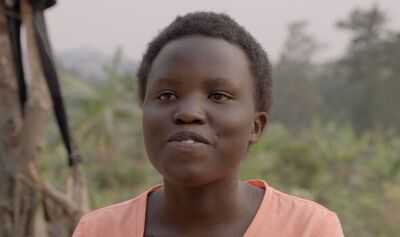British scientists are urging the Government to support malaria research as analysis shows a resurgence could claim almost one million more lives by 2030. Millions of deaths have been prevented over the last 25 years thanks to advances in preventing and treating the disease. But scientists fear a perfect storm of threats - including extreme weather, humanitarian crises and funding cuts - means progress could soon reverse.
The Government is due to co-host the eighth replenishment of the Global Fund to Fight AIDS, Tuberculosis and Malaria alongside South Africa next month. The UK pledged £1bn in the previous round, which raised $18bn overall. With many governments under pressure to boost spending on defence and other key areas, experts are appealing for nations to maintain strong support.
Dr Mehreen Datoo, a leading researcher at the University of Oxford's Jenner Institute, said losing focus would "risk undoing years of hard-won gains".
She added: "British science is leading the fight against malaria, helping to develop vaccines and tools that are saving lives across the world.
"But there isn't one single solution. No vaccine or treatment on its own is enough. We need a combination of approaches and continued research to make these tools even more effective."
Professor Tom Churcher, an expert in infectious disease dynamics at Imperial College London, said: "British-backed innovations have helped to save millions from the disease.
"In recent years we've seen great leaps in advanced technologies like genetically modifying mosquitoes, we've seen vaccines rolled out across Africa, the development of next generation bed nets, drugs to treat malaria and - all helping to treat and protect those at risk of malaria.
"But it's critical we maintain this momentum. Malaria and the mosquitoes that carry it are extremely resilient, we urgently need new and innovative tools to control the disease, stop its spread and save lives."
There were 236 million malaria cases in 2023, leading to 590,000 deaths. Three quarters affected children under five.
A report from charity Malaria No More UK and the African Leaders Malaria Alliance modelled the possible consequences of funding cuts.
It found that if prevention collapses, Africa could face 990,000 extra deaths by 2030 - including 750,000 under fives.
This could also cause a loss of $83billion in GDP across the continent. Weaker African growth threatens global trade, disrupts supply chains and undermines stability in one of the world's fastest-growing markets, campaigners argued.
Meanwhile, achieving malaria reduction targets could generate an estimated $230 billion in GDP growth by 2030, opening up trade opportunities.
The Express met those on the frontline of the fight to stop malaria in Tanzania this summer, where many researchers believe eradication is now within reach.
Gareth Jenkins, Malaria No More UK's executive director of advocacy and strategy, said a drop in funding would risk "the deadliest resurgence we've ever seen".
He added: "The choice is clear: invest now to end malaria or pay far more when it returns. A full investment in the Global Fund will save millions of children's lives, unlock billions in growth, and make the world safer."
Joy Phumaphi, executive secretary of the African Leaders Malaria Alliance, said: "Ending malaria is a win-win: it saves lives, strengthens health systems, and can unlock $230 billion in growth for Africa by 2030.
"Leaders from donor countries and malaria-endemic nations must step up and fully replenish the Global Fund."
A FCDO spokesperson said: "The UK has not yet decided what its pledge to the Global Fund will be. We will announce this in due course."
 'Ending malaria would allow us to pursue our dreams'
'Ending malaria would allow us to pursue our dreams' Filette Niyogisubizo, 15, survived malaria but has seen the disease claim lives in her community.
She said: "Some people die because they don't have the means to go to hospital. It's sad to see people lose their lives to something we can prevent."
The young pupil missed school exams when she fell ill. She recalled: "It was really hard to concentrate.
"My mum couldn't leave me alone while I was sick, so she couldn't go to work to earn money. It affected my whole family."
The elimination of malaria would mean children can "keep learning and living our dreams", Filette said. She added: "That would be a happy moment for us kids. We could play without worry.
"You need to hear my story because I am a malaria survivor. Please do what you can to help us end malaria."
You may also like

Moon mystery solved: The truth about its giant crater will shock you

"Had praying to Goddess Lakshmi made one rich, India wouldn't be poor": Swami Prasad Maurya

Table tennis: China's Wang, Sun pull out of WTT Champions Montpellier

Former Google CEO Eric Schmidt's ex-girlfriend accuses him of abuse, stalking, and absolute surveillance

Kerala BJP delegation meets President Droupadi Murmu, apprises Sabarimala gold 'theft' incident






